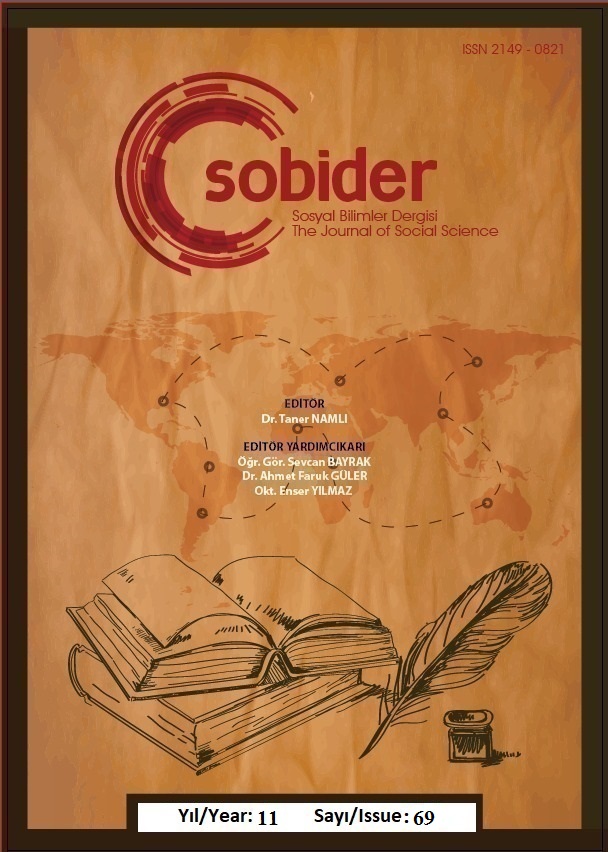Author :
Abstract
Öğretmenlerin eleştirel düşünme becerileri, eğitim sürecinde temel bir rol oynar. Bu beceriler, öğrencilere bilgiyi sorgulama, analiz etme, eleştirme ve sentezleme yeteneklerini kazandırmak için gereklidir. Eleştirel düşünme becerilerine sahip öğretmenler, öğrencilere bilgiyi derinlemesine anlamaları ve problem çözme yeteneklerini geliştirmeleri konusunda rehberlik edebilirler. Bu sayede öğrenciler, karmaşık sorunları ele almak için gerekli olan düşünsel esneklik ve yaratıcılığı geliştirme fırsatı bulurlar. Bu çalışmanın amacı öğretmenlerin eleştirel düşünme eğilimlerine etki eden demografik özelliklerin belirlenmesidir. Araştırmanın amacı doğrultusunda yapılan analizler sonucunda araştırmaya katılan öğretmenlerin cinsiyetleri ve yaşları ile eleştirel düşünme eğilimleri arasında anlamlı bir farklılık bulunmazken; medeni durumları ve mesleki kıdemleri ile eleştirel düşünme eğilimleri arasında anlamlı bir ilişki olduğu tespit edilmiştir.
Keywords
Abstract
Teachers' critical thinking skills play a fundamental role in the educational process. These skills are necessary to impart to students the abilities to question, analyze, criticize, and synthesize information. Teachers with critical thinking skills can guide students to understand information deeply and develop problem-solving abilities. As a result, students have the opportunity to enhance their cognitive flexibility and creativity required to address complex issues. The purpose of this study is to identify the demographic characteristics influencing teachers' tendencies toward critical thinking. Analysis conducted in line with the study's objectives revealed that while there was no significant difference in critical thinking tendencies based on the gender and age of participating teachers, there was a significant relationship between their marital status, professional tenure, and critical thinking tendencies.





